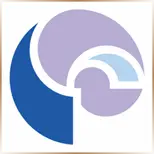 General
GeneralChemistryPhysical
ChemistryChemical
EngineeringBiological
ChemistryPharmaceutical
& MedicinalOceanography
& Geochemistry
Cape Fear Community College: Chemistry Ranking 2024
 Ranked
Ranked1,482
in the USACape Fear Community College is a medium-sized public community college offering numerous disciplines along with the chemistry program and located in Wilmington, North Carolina. The school was opened in 1958 and is currently offering certificates and associate's degrees in Chemical Technology.Cape Fear Community College is inexpensive; tuition price is around $10,000 per year. If you look for a cheaper alternative, check Affordable Colleges in North Carolina listing.
According to recent analysis, Cape Fear Community College area is safe; the school is reported to have an excellent rating for campus safety.
Based on 68 evaluation criteria, Cape Fear Community College chemistry program ranks #1,482 Chemistry School (out of 1532; top 100%) in USA and #44 Chemistry School in North Carolina. Major competing chemistry colleges for this school are University of Virginia in Charlottesville and University of North Carolina in Chapel Hill. See the details about all twelve competitors as well as available chemistry majors and minors below.
Chemistry programs ratings 2023-2024:
Overall rating:
Curriculum rating:
Teaching rating:
Safety rating:
School ranking:
#44 Chemistry School in North Carolina
#336 Chemistry School in the Southeast
#1,482 Chemistry School in USA
#336 Chemistry School in the Southeast
#1,482 Chemistry School in USA
Program rankings:
State Ranking
#43 General Chemistry Program in North Carolina
Regional Ranking
#320 General Chemistry Program in the Southeast
National Ranking
#1,410 General Chemistry Program in USA
More program rankings:
You may be interested in other options to get accepted at Cape Fear Community College:Also, check how Cape Fear Community College ranks among community colleges in North Carolina.
Contact information:
Cape Fear Community College
411 North Front Street
Wilmington, NC 28401-3910
Phone: (910) 362-7000
Website: www.cfcc.edu
411 North Front Street
Wilmington, NC 28401-3910
Phone: (910) 362-7000
Website: www.cfcc.edu
Location map:

Chemistry majors:
One but less than two years certificate
Chemical Technology
Associate's degree
Chemical Technology
Local competitors:
Jump to:
All Chemistry SchoolsSoutheast Chemistry Schools
North Carolina Chemistry Schools
Wilmington Chemistry Schools